Navigating the complexities of a joint custody agreement can be challenging, but with the right approach, it becomes a path toward collaborative parenting. It's essential to foster open communication and mutual respect to ensure the best outcomes for the children involved. This letter template serves as a starting point for parents looking to establish clear guidelines and shared responsibilities. Join us as we explore the key elements of crafting a successful joint custody agreement!

Introduction and Purpose of Agreement
The Joint Custody Agreement serves as a legal document outlining the framework for shared parenting responsibilities for separated or divorced parents of minor children, specifically those under the age of 18. This agreement establishes parenting time schedules, decision-making authority, and communication protocols between parents, ensuring that the children's best interests remain prioritized throughout the arrangement. Key components include detailed time-sharing plans, which define holidays, weekends, and special occasions, as well as guidelines for co-parenting communication methods, including phone calls, emails, and in-person meetings. The purpose of the agreement is to provide clarity, reduce conflicts, and promote a cooperative parenting environment, supporting emotional stability for children by fostering consistent involvement from both parents.
Custody Schedule and Living Arrangements
Joint custody agreements require careful planning to ensure balanced parenting time and stability for children. A comprehensive custody schedule outlines specific days and times that children will spend with each parent, often alternating weekends or weekdays to maintain consistency. Living arrangements play a vital role in this agreement, detailing the primary residence, which may influence schooling and local community involvement. Holidays, vacations, and special events should be clearly defined to avoid misunderstandings, ensuring that both parents participate in significant milestones like birthdays or family gatherings. Effective communication between parents fosters a positive environment for children, reinforcing that both parents are equally involved in their lives despite the changes in living situations.
Decision-Making Responsibilities
Joint custody agreements outline the decision-making responsibilities between parents regarding the upbringing of their child. In such agreements, parents may share responsibilities like education, healthcare, and religious upbringing. Specific provisions address who makes important decisions, such as choice of schools (public versus private options) or healthcare providers (pediatricians, specialists). Additionally, details may include how parents will communicate regarding these decisions, possibly designating a primary contact method, such as weekly meetings or monthly reports. Moreover, any dispute resolution steps, such as mediation or consulting a family therapist, may be stipulated to ensure smooth cooperation. Clear definitions of roles help avoid confusion and foster a collaborative environment for raising children, ultimately prioritizing their best interests.
Communication and Dispute Resolution
Effective communication is essential in a joint custody agreement, particularly regarding child-related matters such as visitation schedules, academic activities, and health appointments. Establishing clear channels for ongoing correspondence helps both parents remain informed and responsive to their child's needs. For dispute resolution, an identified process, such as attending mediation sessions facilitated by professionals from accredited organizations, allows both parties to navigate disagreements constructively. Parents may designate specific times each week, such as Wednesday evenings, to discuss upcoming plans or concerns. This structure not only fosters collaboration but also prioritizes the child's well-being and stability through consistent involvement from both parents in decision-making processes.
Financial Obligations and Support
In joint custody agreements, financial obligations refer to the monetary responsibilities both parents hold towards their children, reflecting the financial support necessary for their welfare. Monthly child support payments typically arise from the calculation of parents' incomes, often guided by state guidelines which may include factors such as the number of children, healthcare costs, and educational expenses, which can significantly impact the family's financial stability. These payments contribute to essential needs, including housing, food, clothing, and extracurricular activities, ensuring children maintain a stable lifestyle despite parental separation. Additionally, parents may agree on shared costs for activities such as school tuition, medical expenses, and childcare services, which necessitate clear documentation to avoid misunderstandings or disputes. Regular adjustments to the financial obligations might occur, reflecting changes in income, job status, or any significant life events, ensuring ongoing fairness and transparency in the joint custody arrangement.
Letter Template For Joint Custody Agreement Samples
Letter template of joint custody agreement for modifying existing arrangements
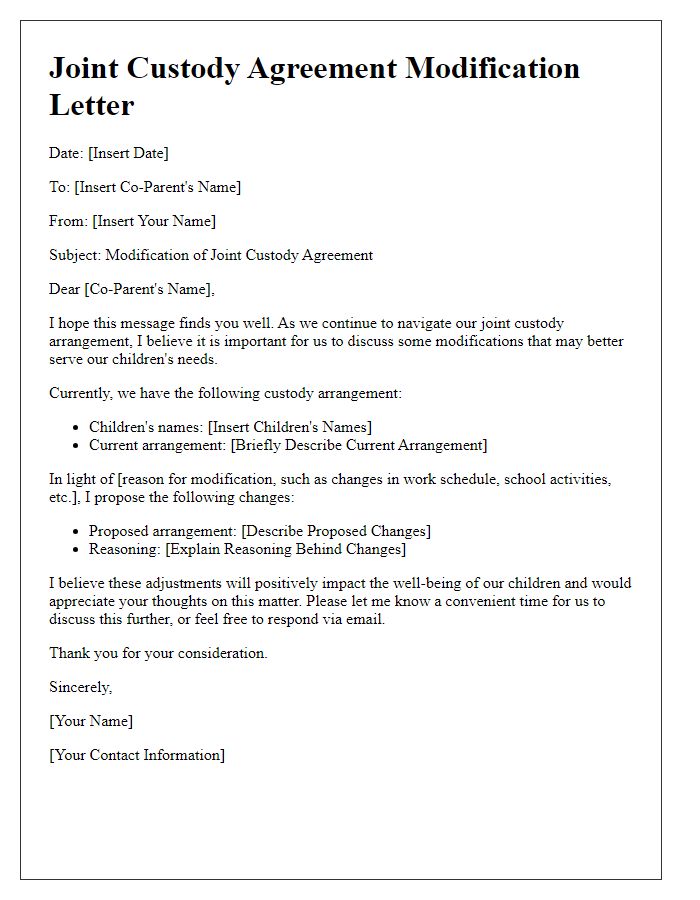

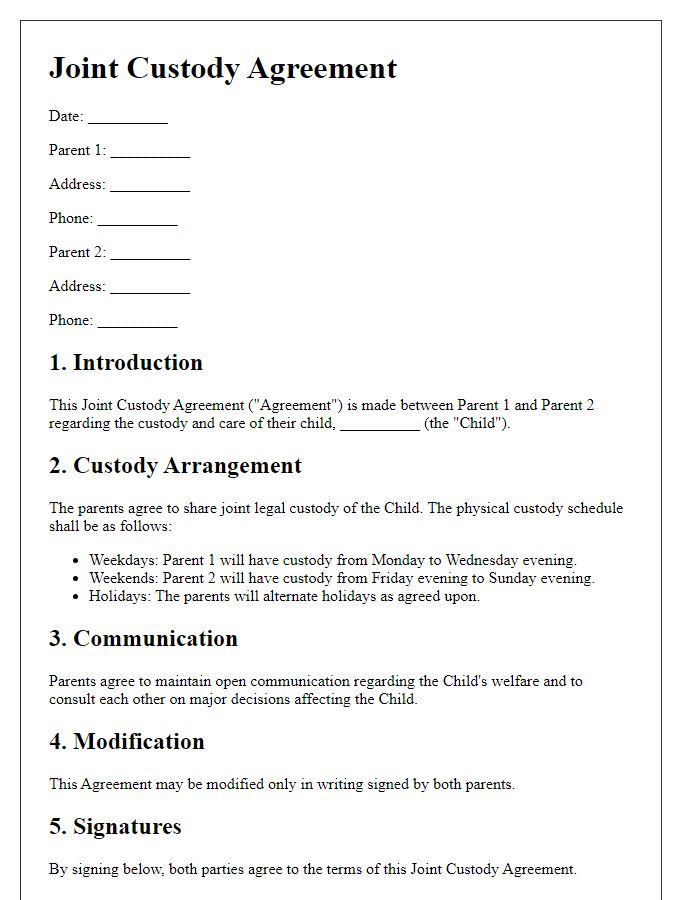
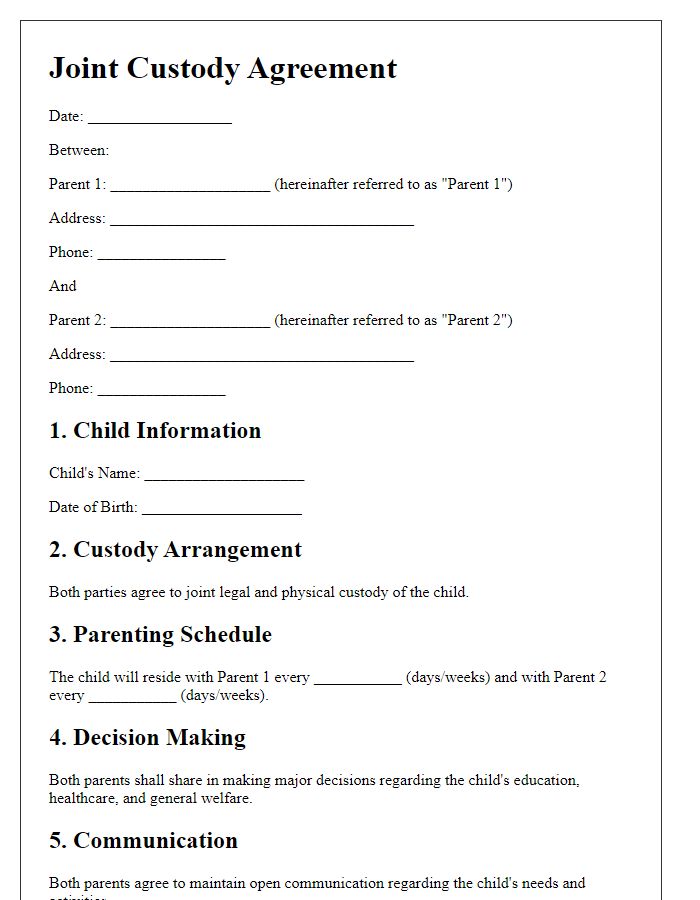
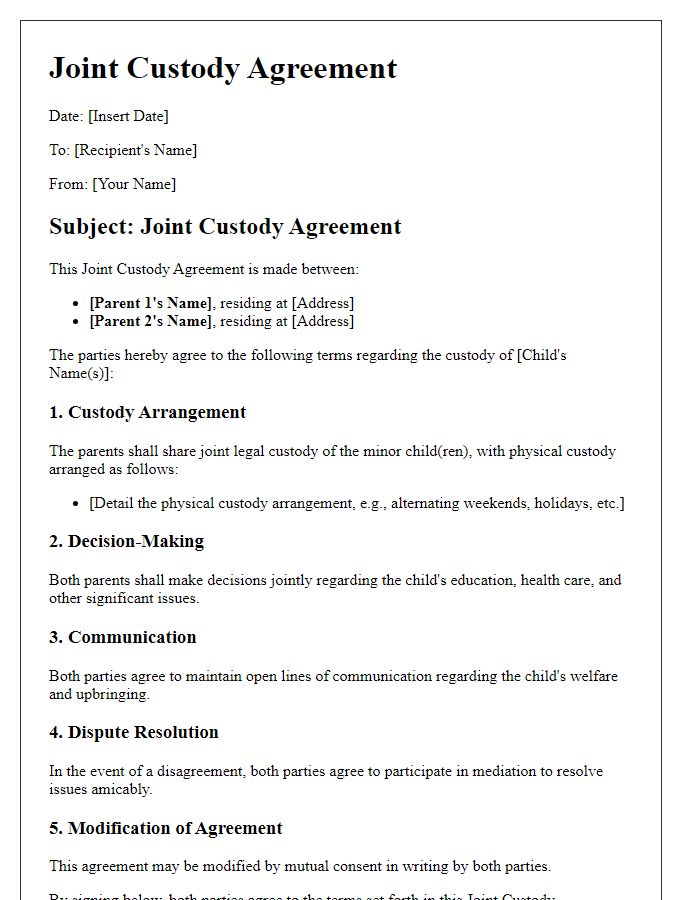
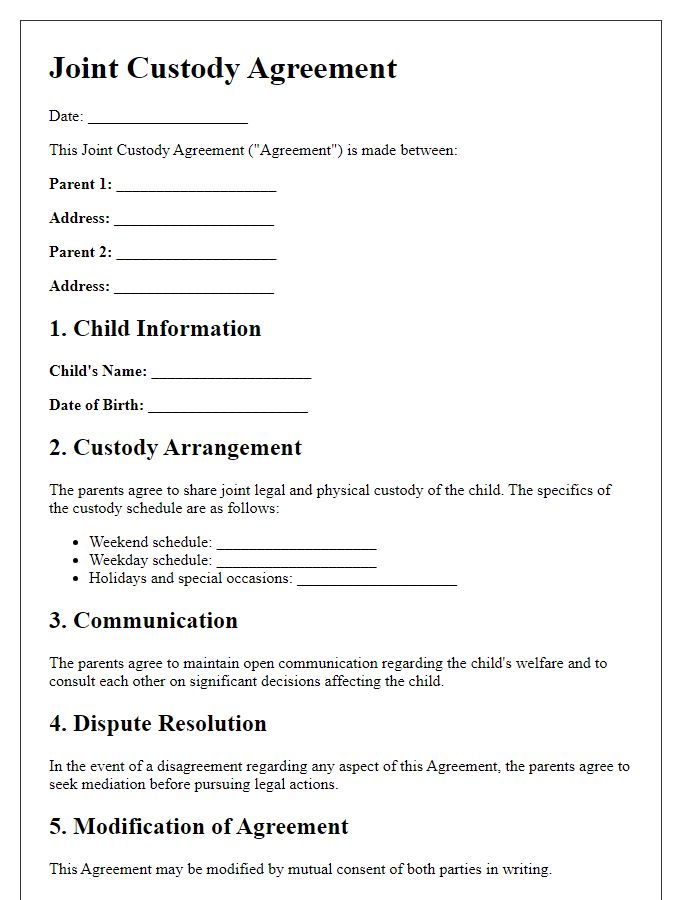
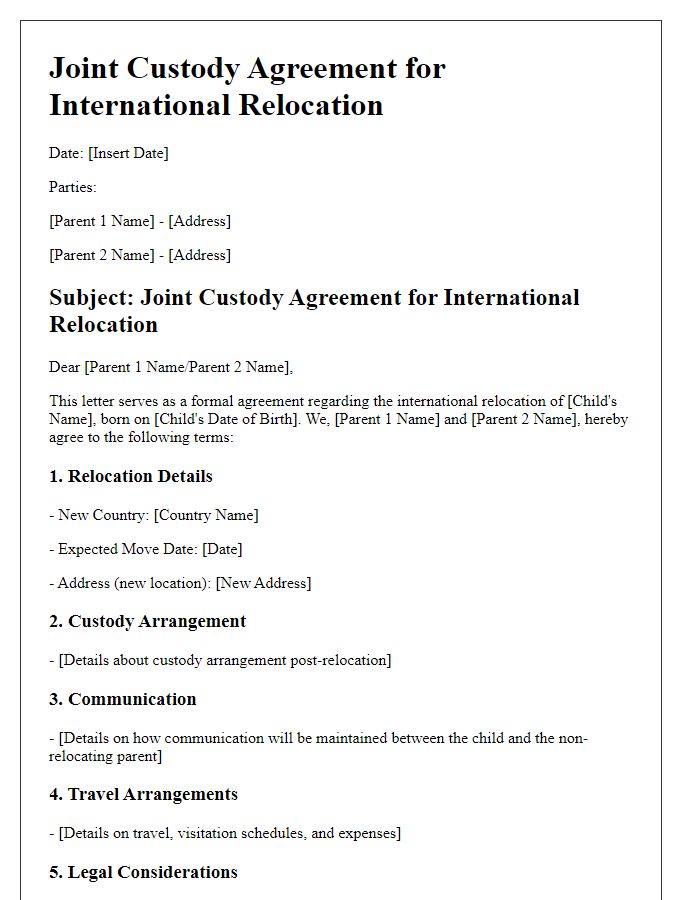
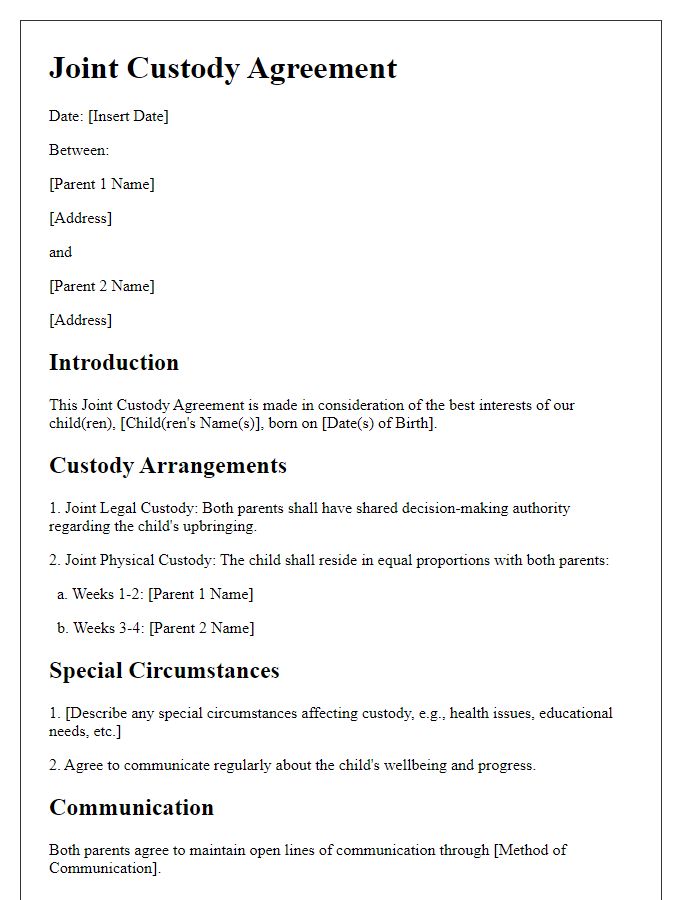


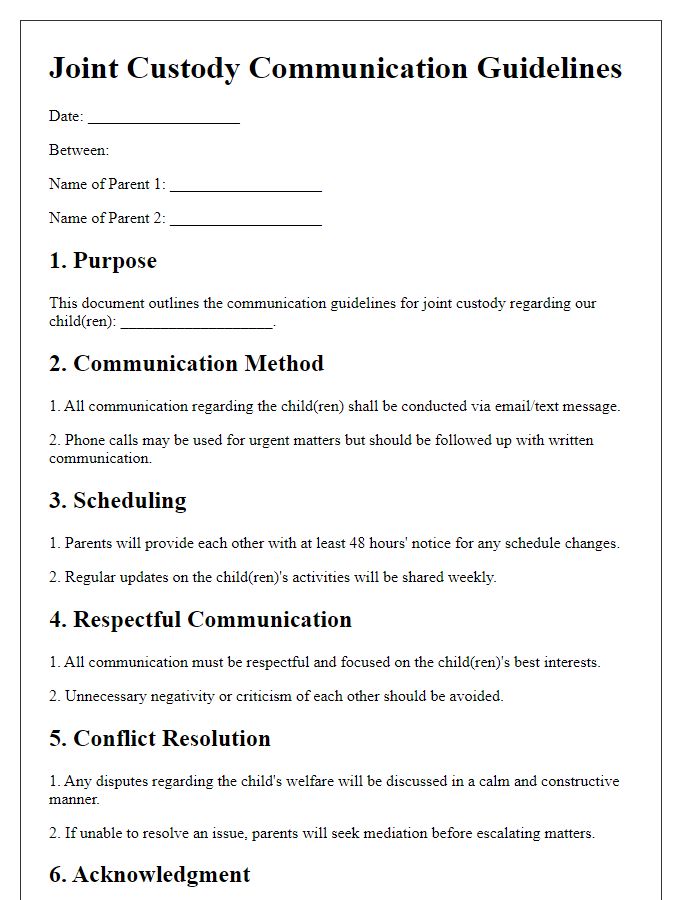


Comments